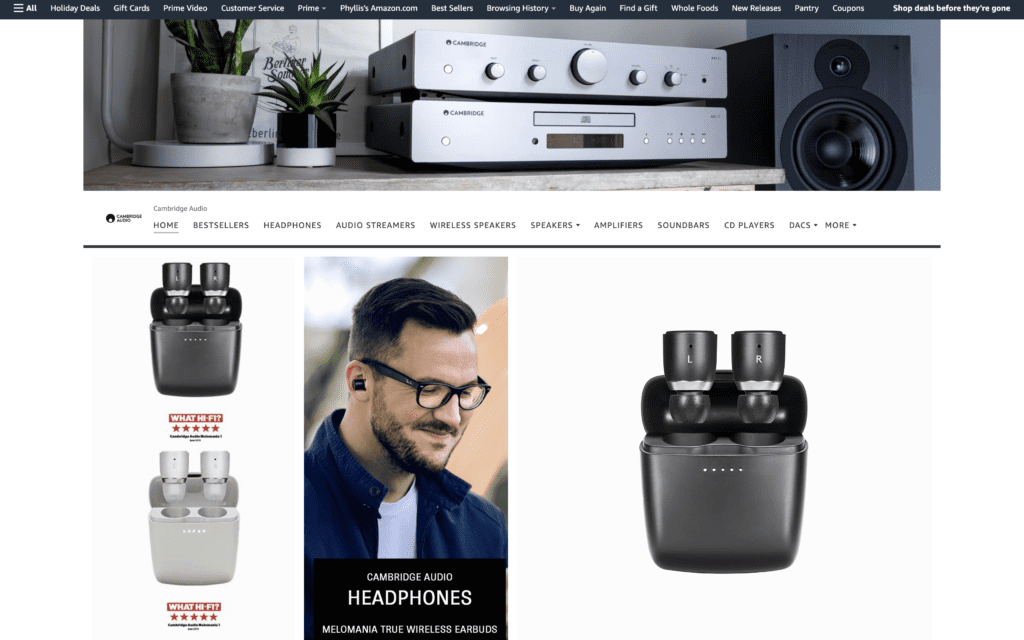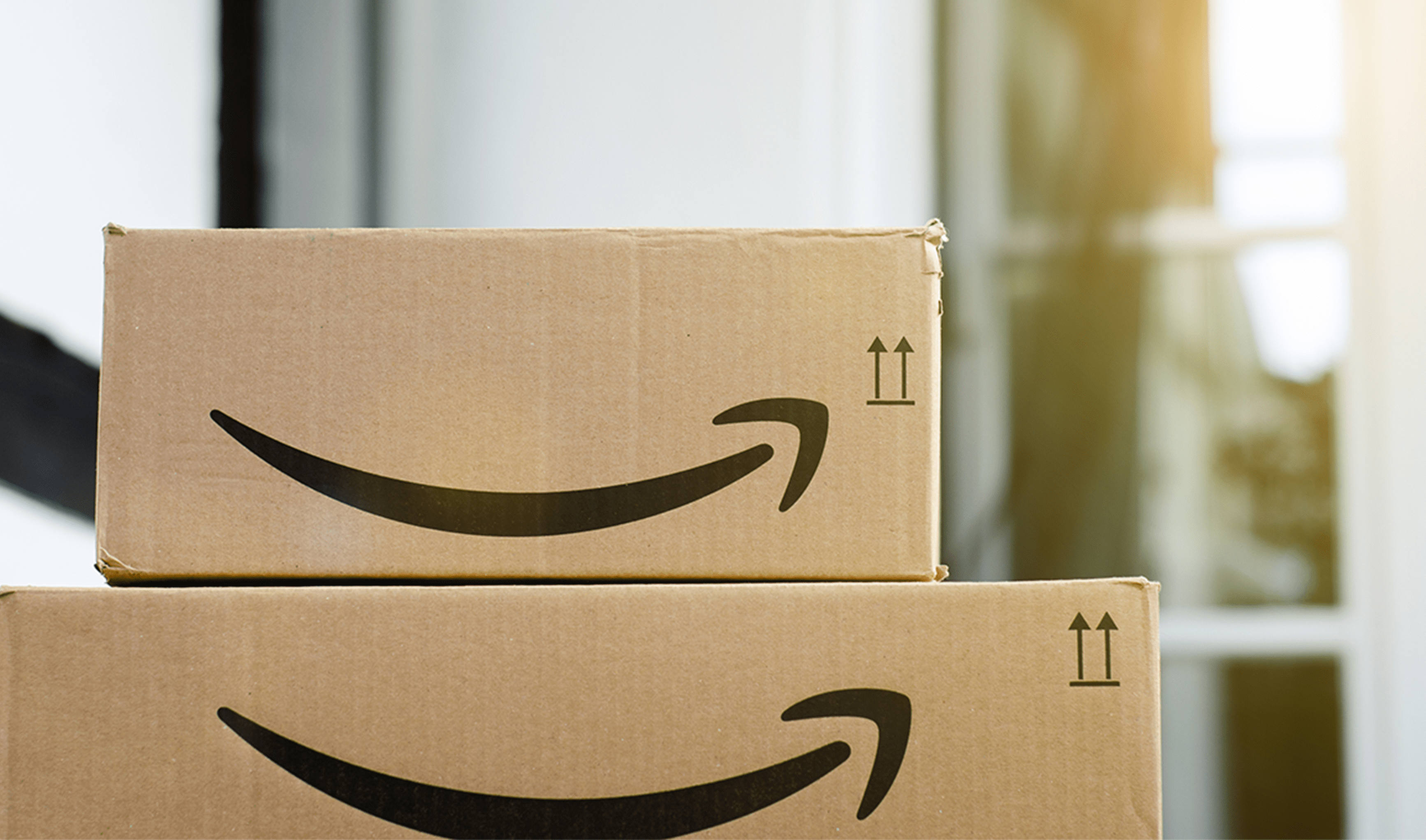Amazon Multi Channel Fulfillment may be the first thought for Amazon sellers launching a new sales channel, but is it the best option for your business? Explore alternative options for streamlining a multichannel fulfillment strategy and understand the true impact of fulfillment and delivery on brand and customer satisfaction.
What Is Amazon Multi Channel Fulfillment [MCF]?
Most Amazon sellers are familiar with Fulfillment By Amazon [FBA], the fulfillment solution provided by Amazon to help sellers maintain their Prime status. The ecommerce giant invests heavily in their warehouse and delivery infrastructure to continually improve delivery speed to more and more of the country.
Amazon’s Multi Channel Fulfillment [MCF] program takes this offering a step further, providing fulfillment services for merchants regardless of the channel the sale comes through. Merchants store their products at Amazon’s ecommerce distribution centers. Orders from multiple platforms are routed through Amazon’s API, and Amazon picks, packs, and ships the order.
Amazon Multi Channel Fulfillment (MCF) is the first stop for many Amazon-only sellers who are taking their first step into a multichannel ecommerce strategy (perhaps launching an ecommerce site or listing on multiple marketplaces for the first time). Most fast-growing brands find outsourcing fulfillment to a single provider a convenient option.
However, Amazon sellers should consider the cost of sacrificing supply chain resilience in the name of convenience. And ultimately, sellers should consider the long-term effects of relinquishing control of brand identity, business objectives, and customer experience to a competitor rather than a partner.
Amazon Multi Channel Fulfillment [MCF] Dilutes Brand Identity
Building a strong brand identity is essential for growing businesses to differentiate themselves in the marketplace. Strong brand identity helps build a loyal customer base and eventually lowers customer acquisition costs. Brand is built through more than just logos and marketing efforts but through the end-to-end customer experience.
That experience begins with a customer’s first introduction to your brand at the top of the sales funnel, continues through the purchase decision, and includes the delivery and at-home experience with your product. One major downfall of Amazon MCF is its association with the Amazon brand.
All shipments are packaged in Amazon-branded packaging, regardless of whether the sale originates from Amazon, your ecommerce store, or another participating marketplace. (Although marketplace options will be limited when fulfilling through MCF. More on that later.)
This creates a confusing customer experience and potentially dilutes your brand identity. Receiving a product from your ecommerce storefront in Amazon-branded packaging may well send shoppers back to Amazon (and possibly to another seller) for their next purchase.

A Case for Seller-Fulfilled Prime [SFP]
Merchants considering Amazon Multi Channel Fulfillment may be currently fulfilling their Amazon orders through Fulfillment by Amazon (FBA). These sellers may be hesitant to find an additional fulfillment provider for their new sales channels, but there is another option to streamline fulfillment through a single partner with Seller-Fulfilled Prime (SFP).
SFP allows merchants to choose their own fulfillment provider and keep their Prime status as long as they can meet Prime delivery requirements. This allows sellers to funnel fulfillment for multiple sales channels through a single provider without the limitations of Amazon Multi Channel Fulfillment.
How Cambridge Audio Leverages Amazon for Brand Awareness (without FBA)
Cambridge Audio is a UK-based company that entered the US market in 2017. They knew that Amazon marketplace sales would be a key to establishing their US presence and breaking into the mass consumer market. However, as an established high-end brand with a distinct brand voice, they knew they needed to enter the marketplace on their own terms to keep from diluting or muddy-ing their brand.
Their carefully curated Amazon store leaves a browser with no doubt that they’re shopping Cambridge Audio’s store and clearly differentiates themselves from their competitors. On the fulfillment side, Cambridge Audio chose a single on-demand warehousing partner with the capabilities to package their products in their branded packaging and according to their requirements. This way the customer journey from start to finish is clearly a journey with Cambridge Audio and always points back to their brand and products.

However, many sellers may wonder if their current fulfillment operations can meet SFP’s rigorous fulfillment requirements. Ware2Go’s SFP network is a flexible solution that helps Amazon sellers meet the new SFP requirements without deteriorating their margins.
Or, alternately, merchants who are looking for FBA alternatives may find that dropping the Prime badge and enrolling by Fulfillment by Merchant (FBM) is the best way to protect both their brand and their margins.
Looking for an Amazon Fulfillment solution? Reach out to one of our in-house experts.
Amazon Multi Channel Fulfillment [MCF] Impedes Business Objectives
Amazon Multi Channel Fulfillment has many of the same limitations that can frustrate FBA sellers, including:
- Strict storage limits
- High storage rates for inventory that doesn’t meet its Inventory Performance Threshold limits
- No price breaks for multi-unit orders
Additionally, MCF is not an approved fulfillment partner for Target+ or the fastest growing ecommerce marketplace, Walmart Marketplace. Brands hoping to build a viable multichannel selling strategy would be remiss to overlook Walmart’s broad audience and loyal customer base.
And finally, MCF does not support international shipments. Establishing an international customer base is an important growth lever for many small to mid-sized merchants. You should not take lightly the decision to Cut yourself off from the international market in any stage of business growth.
The Importance of Delivery Experience
Although Amazon has in many ways set the standard for fast delivery, their dogged commitment to their customers means that Amazon Prime and FBA orders will always take first priority. Merchants enrolled in MCF have complained that their orders have fallen by the wayside during times of high demand for Amazon Prime. The delivery experience is a main driver of customer satisfaction and retention and should be placed in the hands of a provider that you consider a true partner and champion of your brand.
So as merchants branch into multichannel growth, they should take a step back to consider the full impacts of fulfillment on their brand, business objectives, and customer experience. Amazon Multi Channel Fulfillment may seem like a convenient option, but its limitations could be too high of a price to pay in the name of convenience.
To learn more about how Ware2Go is simplifying multichannel fulfillment for merchants of all sizes, take a look at Our Solution.



